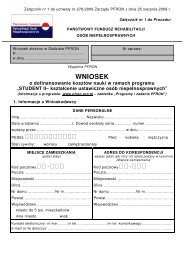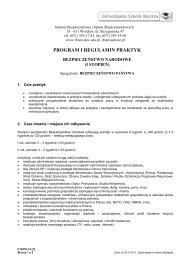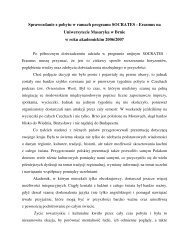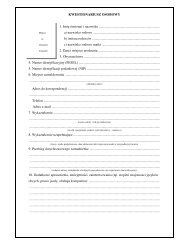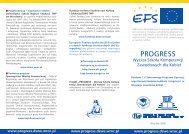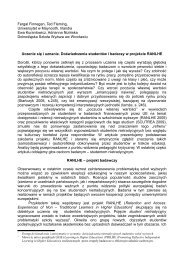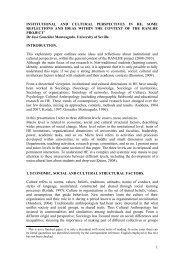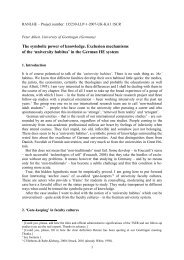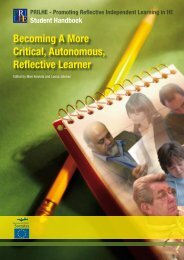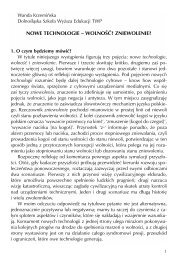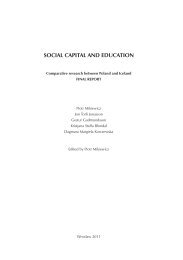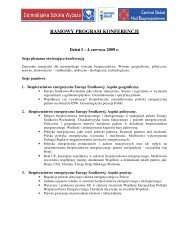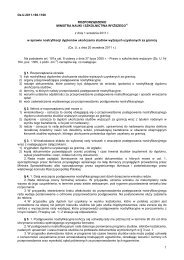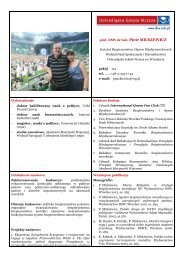Becoming A More Critical, Autonomous, Reflective Learner
Becoming A More Critical, Autonomous, Reflective Learner
Becoming A More Critical, Autonomous, Reflective Learner
You also want an ePaper? Increase the reach of your titles
YUMPU automatically turns print PDFs into web optimized ePapers that Google loves.
PRILHE Project - Lecturer’s Toolkit<br />
But after a while the group functions as a resource for the students during their learning processes. All groups have their own<br />
teacher who moderates the process and encourages students in different ways. But the groups are also supposed to arrange own<br />
meetings and take initiatives on their own.<br />
Those groups are real good in several ways but they could be used much more, e.g. we are only meeting the teacher<br />
once each semester and that could occur much more often.<br />
(Student, Sweden)<br />
Small permanent groups are also a context where students can discuss other matters than those directly connected to courses<br />
they are participating in. The competence group involves both informal and formal learning opportunities. But it also offers an<br />
opportunity for the student to develop the courage to talk and to listen to his/her own voice as well.<br />
Everyone must dare to hear one’s voice, everyone must dare to hear one’s opinions I believe ….and dare to be<br />
confronted with what is your opinion and what is your prejudice.<br />
(Student, Sweden)<br />
This quotation shows clearly how group work within the CARL-setting can function successfully: There is a necessity for a basic<br />
learning group culture which actually frames the whole study scheme. Building from this, smaller groups can be spontaneously<br />
constituted and encouragement given to those students who used to be shy and introverted. The different learning group levels<br />
strengthen the opportunity to learn from diversity, to find one’s autonomous standpoint and to be critical in a productive way of<br />
your own and others’ perspectives.<br />
When working in groups, problems sometimes occur. One solution for the group might be to formulate a group contract. The<br />
teacher can prescribe what shall be in the contract, e.g. strategies for co-operation, how to solve problems and how each student<br />
makes their commitment. Another way of doing it is to let the group formulate their own contract by discussing what problems<br />
group-work might involve and how they want to solve such situations together.<br />
30<br />
<strong>Becoming</strong> A <strong>More</strong> <strong>Critical</strong>, <strong>Autonomous</strong>, <strong>Reflective</strong> <strong>Learner</strong>



